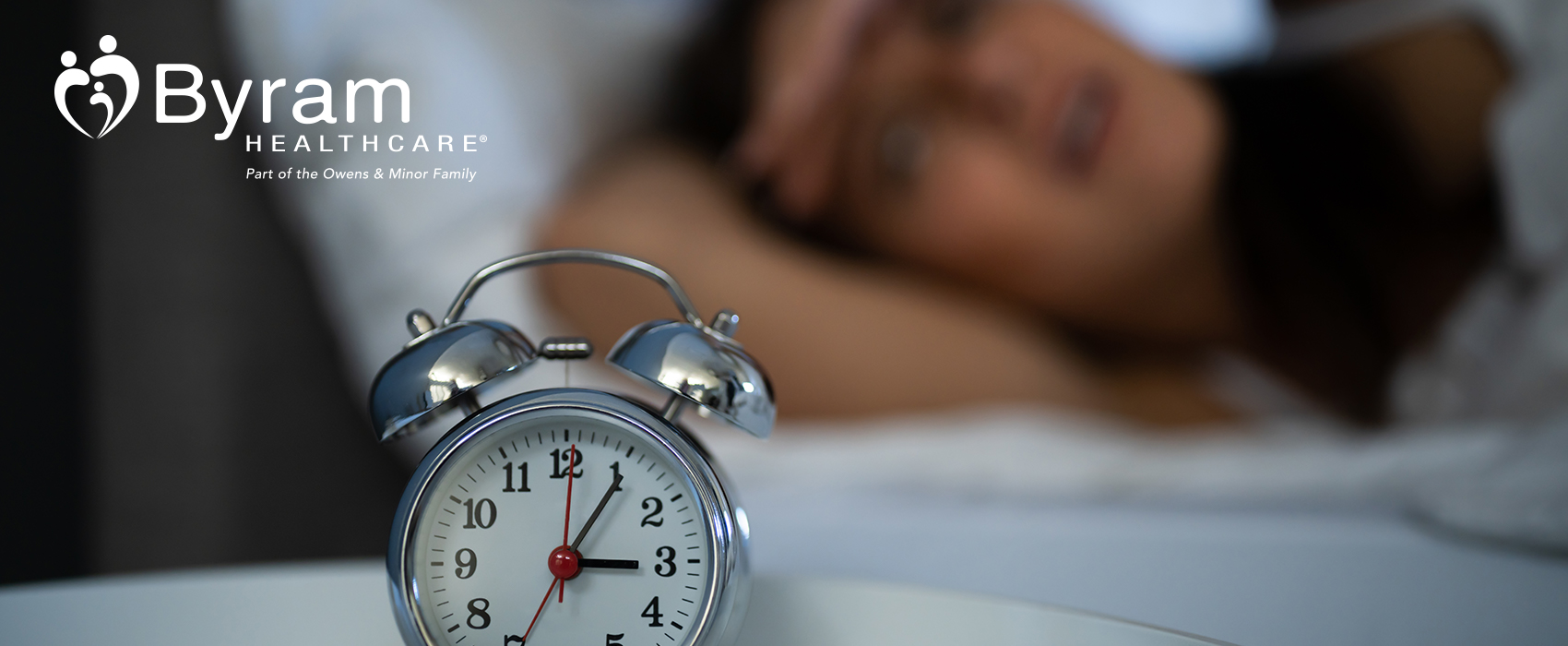
Millions of Americans suffer from nocturia, or frequent urination at night, and don’t realize that it’s actually a medical condition. This leads to disrupted sleeping habits and less than ideal daytime conditions. Sleep is a crucial part of our overall health. When we get fewer than 6 hours of sleep each night, our body starts to function less efficiently, and our brain doesn’t get a chance to clean out all of the waste product from the day before. This leaves us feeling both physically and mentally exhausted. The more often our sleep is disrupted, the worse we feel. While it’s normal for our sleep quality and time to vary from day to day and on weekends vs. workdays, interrupted sleeping shouldn’t happen every night and if it does, you might be suffering from nocturia. While a lot of people think that urinary problems are reserved for elderly people or those suffering from other medical conditions, that’s not the case. In this article, we’ll answer the question, “what does nocturia mean?” and give you some important facts about frequent urination at night.
What is Nocturia?
The nocturia medical definition describes excessive urination at night, but what exactly is excessive? According to doctors, excessive urination at night (nocturia) is when you wake up more than once to use the bathroom during the 6-8 hours you would otherwise be sleeping. Nocturia is commonly referred to as nocturnal urinary frequency and tends to increase in prevalence as you age. It affects both men and women fairly evenly, but severity of nocturia can be exasperated by different reasons. While it’s completely normal for people to wake up once to urinate, more than that can be a sign of something else happening.
How Common is Nocturia?
Surprisingly, nocturia is fairly common. About 69% of men and 76% of women over the age of 40 report getting up to go to the bathroom at least once per night. In terms of more defined nocturia, about 80% of elderly people are affected and about one-third of adults over the age of 30 make two or more trips to the bathroom each night.
What Causes Nocturia?
While pregnancy is a common cause of nocturia, it’s considered a side effect of increased pressure against the bladder rather than a condition. Nocturia during pregnancy tends to go away about three weeks after delivery, as your body returns to normal.
Chronic cases of nocturia that represent the statistics we discussed above are a bit different. There are three primary types of nocturia, each with their own underlying cause: polyuria, nocturnal polyuria, and nocturnal urinary frequency.
Polyuria
Polyuria is a condition where someone urinates more than 3,000mL in 24 hours—it is not restricted to nighttime. In cases of polyuria, your body makes too much urine throughout the day. Polyuria can be caused by:
- Increased fluid intake
- Type 1 diabetes
- Type 2 diabetes
- Gestational diabetes
- Diabetes insipidus
Nocturnal Polyuria
Nocturnal polyuria is when your body makes too much urine, but only at night. You urinate regularly during the day or even experience a reduced urine output. Nocturnal polyuria is responsible for up to 88% of cases of nocturia. This may be related to fluid retention, which is then reversed when you lay down. Some causes of nocturnal polyuria include:
- Congestive heart failure
- Diets high in sodium
- Increased fluid intake before bed
- The use of certain medications
- Diuretics
- Sleeping disorders like sleep apnea
- Edema or swelling of the lower legs
Nocturnal Urinary Frequency
Nocturnal urinary frequency is the third most common type of nocturia that describes someone who urinates in small amounts or urinates more frequently. Urinating in smaller amounts makes it difficult to fully empty the bladder, thus causing a person to wake up multiple times throughout the night. Urinating more frequently occurs when someone is unable to fill their bladder completely prior to feeling the urge to urinate.
If you have difficulty emptying your bladder completely, your nocturnal urinary frequency can be caused by:
- Bladder obstruction
- Benign prostatic hyperplasia
If you experience the urge to urinate more frequently due to the inability to completely fill your bladder, your nocturnal urinary frequency may be caused by:
- Overactive bladder
- Bladder infection
- Kidney infection
- Bladder malignancy
- Recurring urinary tract infections
- Inflammation of the bladder
- Interstitial cystitis
- Sleep apnea
Symptoms of Nocturia
The primary symptoms of nocturia is having to get up and get out of bed more than once throughout the course of a night. You may also experience an increased volume of urine and fatigue or sleepiness.
Nocturia Sleep Disruption
The main problem regarding nocturia is the disruption to sleep that it causes. While some people are able to fall back asleep after getting up and using the bathroom quickly, others struggle. About 40% of people with nocturia have difficultly falling back asleep, which results in lower-quality sleep and therefore, reduced physical and mental function alongside irritability, daytime sleepiness, and a higher risk of accidents. Lack of sleep has a serious impact on the body and therefore can be dangerous to those getting fewer than 6 hours per night.
Health Risks Related to Nocturia
In addition to sleep disruption, nocturia can result in more physical accidents during the night, especially in older adults. These falls can be serious if someone is getting out up bed quickly and rushing to the bathroom. Nocturia may also lead to a reduced quality of life, depression, and higher overall mortality.
How to Diagnose Nocturia
Diagnosing nocturia is fairly straightforward. Your doctor will begin by asking you some questions regarding your bathroom habits, lifestyle, and sleeping patterns. Be prepared to answer the following questions during your visit:
- When did this start?
- How many times do you urinate each night?
- What is the volume of your urine during these instances?
- Has there been a change in urination output?
- How much caffeine do you consume daily?
- Does frequent urination keep you from getting enough sleep?
- Are you able to fall asleep quickly after urinating?
- How much alcohol do you consume daily?
- Are there any changes to your diet?
- Are you taking any medication?
- Do you have accidents or wet the bed?
- Do you have a family history of bladder problems or diabetes?
After these questions, it’s not uncommon for a doctor to order a few tests to make sure that there are no undiagnosed underlying conditions. Your doctor will likely order testing such as:
- Blood sugar test to check for diabetes
- Blood counts and blood chemistry
- Urinalysis
- Urine culture
- Fluid deprivation test
- Ultrasound
- CT scan
- Other common urological tests
Treating Nocturia and Improving Your Quality of Sleep
Due to the impact of low-quality or insufficient sleep on your overall health, treating nocturia is an important part of keeping your entire body healthy and functioning optimally. If you find yourself getting up during the night to use the bathroom, talk to your doctor about what you can do to get a better night’s sleep. If you have any underlying conditions that are contributing to nocturia, it’s important to get them treated and under control.
If you have underlying conditions under control, or don’t have any to begin with, your doctor will recommend making some important lifestyle changes to help treat nocturia. Some of the main things that you should do include:
- Reducing your fluid intake a few hours before bed
- Avoiding alcohol or decreasing consumption
- Only drinking caffeine in the morning to avoid bladder irritation
- Manage use of diuretics or change medications
- Elevate your legs prior to laying down to manage peripheral edema before sleeping
- Keep a consistent sleep schedule
- Have a routine for falling asleep
- Learn some relaxation techniques
- Exercise regularly
- Make sure your bed, pillows, and sheets are comfortable
- Reducing bedroom noise and light
- Sleeping at a cooler temperature
- Limit your use of electronics prior to getting in bed
- Install motion activating, low-watt lighting for nocturia trips to avoid falls
- Consider taking doctor-approved/prescribed medications for nocturia
Over time, lifestyle changes can help your symptoms of nocturia improve and you should be able to experience longer, more high-quality sleep. If you still feel tired or notice that these changes aren’t helping, don’t feel bad for scheduling an afternoon nap. Sleep is essential in our productivity, health, and wellbeing so it’s better to have a quick 20-30-minute nap if you’re exhausted than to try and power through.
If nocturia continues to be a problem, your doctor may recommend management options such as mattress covers, absorbent briefs, skincare products, or the use of intermittent self-catheterization to fully empty your bladder before bed or throughout the night. For high-quality urologic products, Byram Healthcare has you covered. Contact us today to learn more about our discreet home delivery options and insurance claims process.




